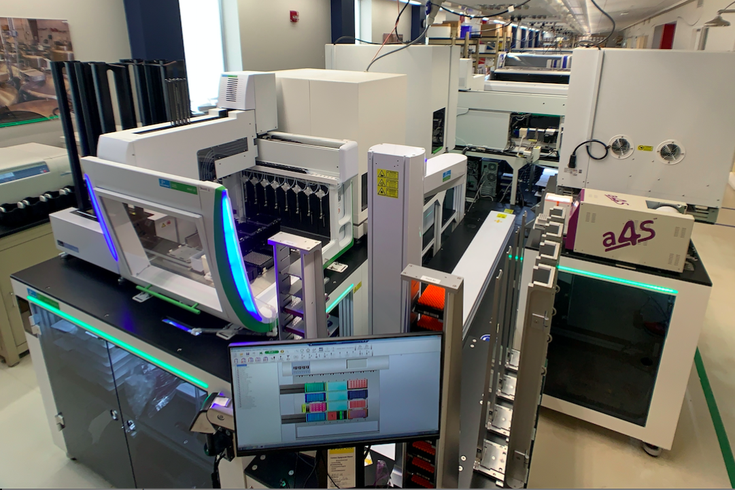
May 10, 2020
 Source/Rutgers University
Source/Rutgers University
Rutgers' saliva-based testing system can now be conducted at home after receiving approval from the FDA.
The FDA has approved a first-of-its-kind at-home COVID-19 saliva-based test developed by Rutgers University, the school announced.
The emergency use authorization handed down by the FDA will now allow people to collect their own saliva from home and send it to a lab to see if they test positive for the coronavirus.
The test, which Rutgers developed alongside Spectrum Solutions and Accurate Diagnostic Labs, will allow for increased screening compared to the standard testing protocol of nose and throat swabs at a healthcare facility or testing location that requires physical interaction with a healthcare professional, the university said.
“The impact of this approval means that not only do we no longer have to put health care professionals at risk for infection by performing nasopharyngeal or oropharyngeal collections, we can now preserve precious PPE for use in patient care instead of testing and can significantly increase the number of people collected each and every day in places other than a healthcare setting,” said Andrew Brooks, who serves as the chief operating officer and director of technology development at Rutgers’ RUCDR Infinite Biologics. He’s also a professor in the School of Arts and Sciences’ Department of Genetics.
“This will enable testing for people who do not have the means to get to a collection center and/or are at home because they are sick, quarantined, at increased risk for infection or simply concerned about exposing themselves by traveling to a collection site,” Brooks continued. “This approach will have a significant impact on helping people in New Jersey and across the United States get back to work as we will be able to monitor large numbers of people in a variety of locations.”
The FDA’s approval comes after the agency granted emergency use authorization last month to Rutgers’ saliva-based COVID-19 testing system, which relies on samples collected by people spitting into tubes. The test is a safer form of screening for health care providers than administering nasal swabs, which are in limited supply.
Scientists at Rutgers partnered with Accurate Diagnostic Labs to develop the test, and some of the world's largest life sciences companies and laboratories—as well as the White House—have reached out to Rutgers about the test and expanding capacity of it across the country.
The saliva test could scale up to tens of thousands of samples daily across the United States with the help of automated lab technology that can rapidly process results.
The saliva-based testing system debuted last month at a drive-thru COVID-19 testing site in Edison, Middlesex County, where initial results would be expected back within 24-48 hours.
The tests would then become available throughout New Jersey's RWJBarnabas Health Network, which include Rutgers' Robert Wood Johnson University Hospital, University Hospital in Newark and several other county health departments. The test has also been implemented in other healthcare systems and at several drive-thru testing sites catering to first responders, including one in Deptford, Gloucester County.
New Jersey announced on April 23 that residents and staff at the state’s five developmental centers for adults with intellectual disabilities would be tested for COVID-19 using Rutgers’ saliva test. More than 5,500 tests were made available to the 1,250 residents and 4,300 staffers who live and work at these state-run facilities.
The state announced on April 30 that the Department of Corrections, in partnership with Rutgers, would begin providing saliva-based COVID-19 tests to thousands of prisoners and correctional officers.
State officials are working to expand the testing system to other state workers and vulnerable individuals.
Follow Pat & PhillyVoice on Twitter: @Pat_Ralph | @thePhillyVoice
Like us on Facebook: PhillyVoice
Add Pat's RSS feed to your feed reader
Have a news tip? Let us know.